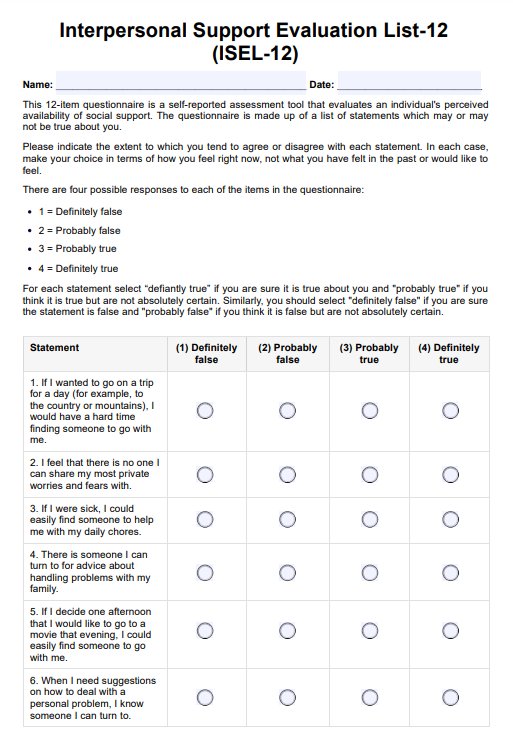The ISEL-12 contains 12 items compared to the original 40-item ISEL. It is shorter and quicker to complete, reducing respondent burden while retaining the core elements of the original scale.

Interpersonal Support Evaluation List-12
Click here to learn more about the Interpersonal Support Evaluation List-12 and how it measures functional social support.
Use Template
Interpersonal Support Evaluation List-12 Template
Commonly asked questions
The ISEL-12 assesses an individual's perceived level of social support available, and this is split into three key dimensions, with subscale scores representing appraisal, belonging, and tangible support:
- Appraisal support: Perceived availability to ask for guidance and or advice.
- Belonging support: Perceived availability of connectedness, empathy, and concern within social networks.
- Tangible support: Perceived availability to rely on others for financial or material assistance.
No. The ISEL-12 template can be used as a self-report assessment. If you get a high total score based on the criteria, please see a professional for further evaluation.
EHR and practice management software
Get started for free
*No credit card required
Free
$0/usd
Unlimited clients
Telehealth
1GB of storage
Client portal text
Automated billing and online payments










